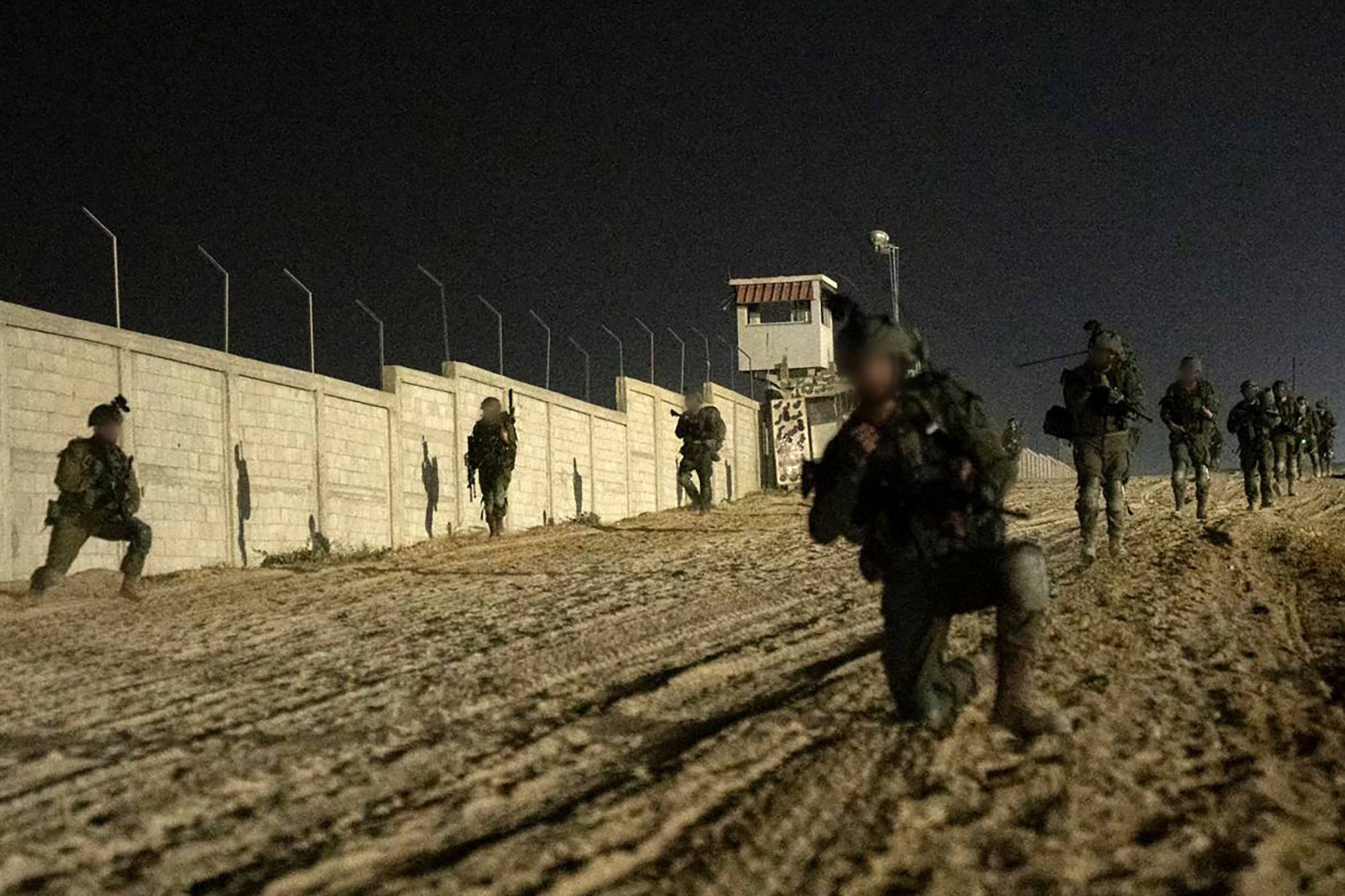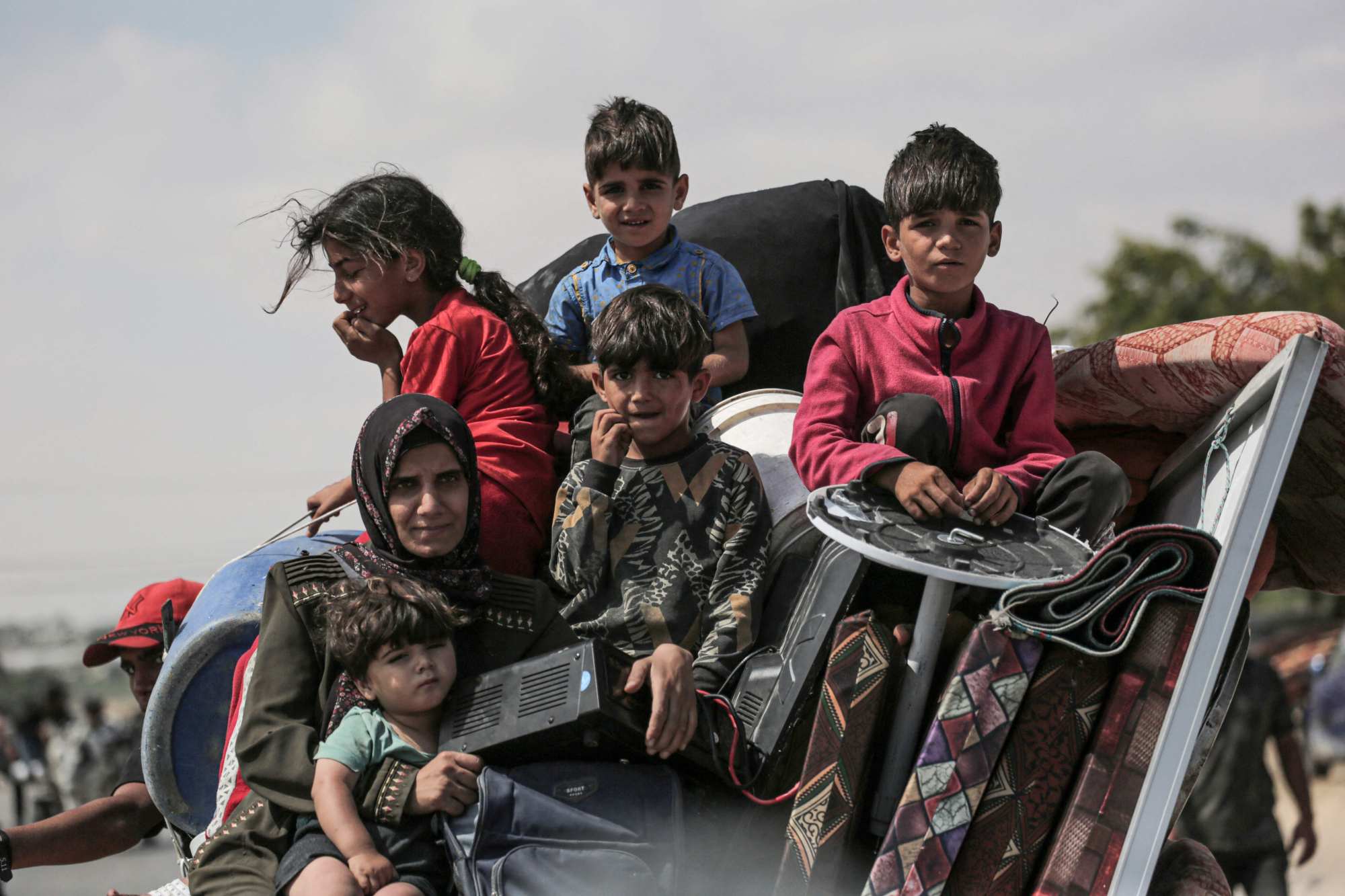Israel, which has repeatedly vowed to destroy Hamas after the Palestinian militant group attacked southern Israel on October 7, said on Wednesday its forces had taken over the 14-kilometre (8.5-mile) Philadelphi corridor on the Gaza-Egypt border, which it suspects was used for weapons smuggling.
Military spokesman Rear Admiral Daniel Hagari announced Israel had taken “operational control” of the narrow border area, where he said troops had “discovered around 20 tunnels”.
Egypt, a long-time mediator in the conflict which has become increasingly vocal in its criticism of the Israeli operation, has rejected claims of smuggling tunnels running beneath the buffer zone.
“Israel is using these allegations to justify continuing the operation on the Palestinian city of Rafah and prolonging the war for political purposes,” a high-level Egyptian source was quoted as saying by state-linked Al-Qahera News.
Egyptian officials have said a potential Israeli takeover of Philadelphi could violate the two countries’ landmark 1979 peace deal, though there has been no official comment from Cairo since the military’s announcement.

On a visit to Beijing, Egyptian President Abdel Fattah al-Sisi called for increased humanitarian assistance to besieged Gaza, and reiterated his country’s long-standing opposition to “any attempt at forcing Palestinians to forcibly flee their land”.
Chinese leader Xi Jinping, meanwhile, called on Thursday for a “broad-based, authoritative and effective international peace conference” to address the war, as he hosted Arab leaders including Sisi.
On the ground in the Gaza Strip, witnesses reported fighting in central and western Rafah. Others said at least five people were killed in bombardment near an aid warehouse in east Rafah.
Nasser hospital in nearby Khan Yunis said at least “four martyrs were brought to the facility following a bombing” in west Rafah.
Witnesses also said Israeli forces had demolished several buildings in the city’s eastern areas where the Israeli incursion began on May 7, initially focusing on the vital Rafah border crossing, a key entry point for humanitarian aid.
An Agence France-Presse correspondent reported artillery and gunfire in the Gaza City neighbourhood of Zeitun, in the territory’s north, where witnesses saw thick plumes of smoke rising over Jabilia refugee camp and Beit Lahia.
A steady stream of civilians have fled Rafah, transporting their belongings on their shoulders, in cars or on donkey-drawn carts.
Before the Rafah offensive began, the United Nations said up to 1.4 million people were sheltering there. Since then, one million have fled the area, the UN agency for Palestinian refugees, UNRWA, has said.
The Israeli military said on Thursday its forces had struck more than 50 targets across Gaza the previous day.
Troops found weapons, explosives and tunnel shafts in Rafah, and battled militants in Jabilia, it added in a statement.
The weekend Israeli strike and ensuing fire, which tore through the camp for displaced Palestinians in Rafah, killed 45 people, according to Gaza officials, and has prompted two days of discussions at the UN Security Council.
Israel has said it targeted a Hamas compound and killed two senior members.
In the wake of the strike, Algeria presented a draft UN resolution that “demands an immediate ceasefire respected by all parties” and the release of all hostages, but it was not clear when it would be put to a vote.
In a phone call with Palestinian president Mahmoud Abbas on Wednesday, France’s Emmanuel Macron said Paris was “determined to work with Algeria” to ensure the council “makes a strong statement on Rafah”.
He also called on Abbas to “implement necessary reforms”, offering the “prospect of recognition of the State of Palestine”.
Decisions by Spain, Norway and Ireland to formally recognise the State of Palestine this week have sparked a debate over the issue, and Macron said recognition should take place at a “useful moment”.

The Gaza war was sparked by Hamas’s October 7 attack on southern Israel, which resulted in the deaths of roughly 1,200 people, mostly civilians, according to Israeli official figures.
Militants also took 252 hostages, 121 of whom remain in Gaza, including 37 the army says are dead.
Israel’s retaliatory offensive has killed at least 36,224 people in Gaza, mostly civilians, according to the Hamas-run territory’s health ministry.
Israel’s National Security Adviser Tzachi Hanegbi said the war could go on until the year’s end.
“We may have another seven months of fighting to consolidate our success and achieve what we have defined as the destruction of Hamas’s power and military capabilities,” Hanegbi said.
The United States has been among those nations urging Israel to refrain from a full-scale Rafah offensive because of the risk to civilians.
However, the White House said on Tuesday that so far it had not seen Israel cross President Joe Biden’s “red lines”.
The Israeli seizure of the Rafah crossing has further slowed sporadic deliveries of aid for Gaza’s 2.4 million people and effectively closed the territory’s main exit point.
The Gaza health ministry on Thursday called to “open the … crossings and facilitate the exit of the sick and the wounded for treatment abroad”.


